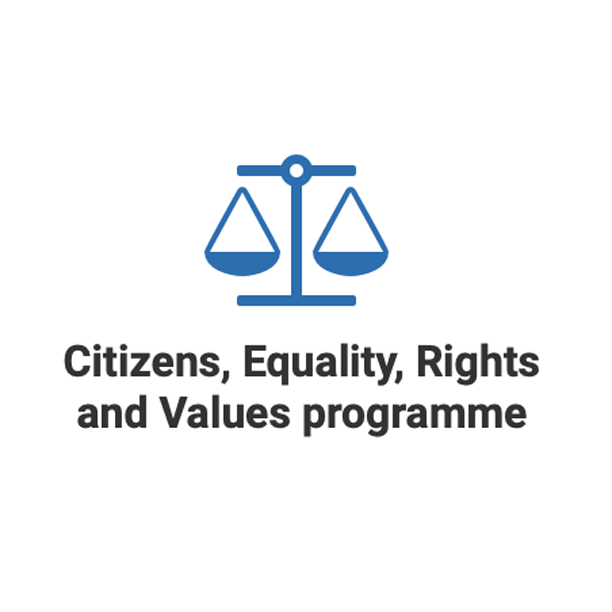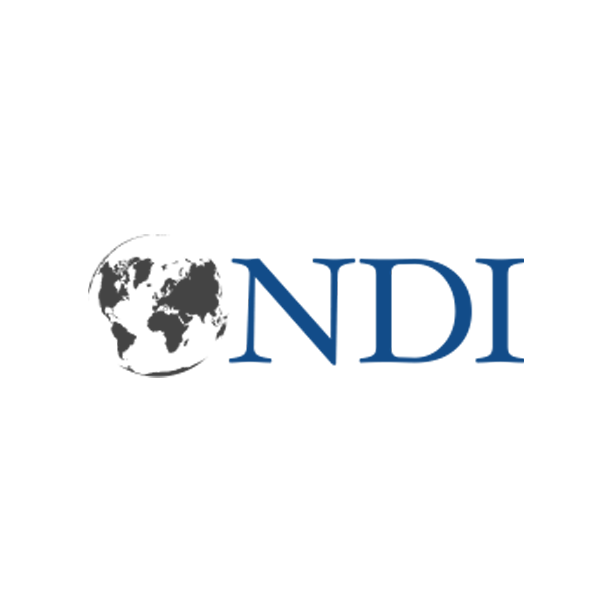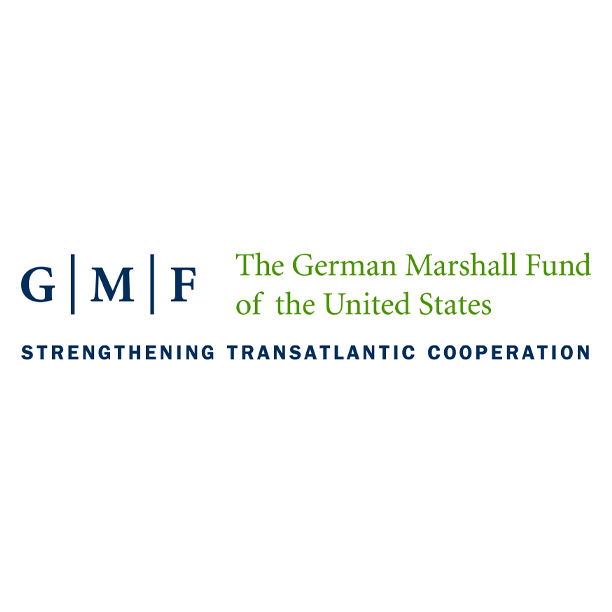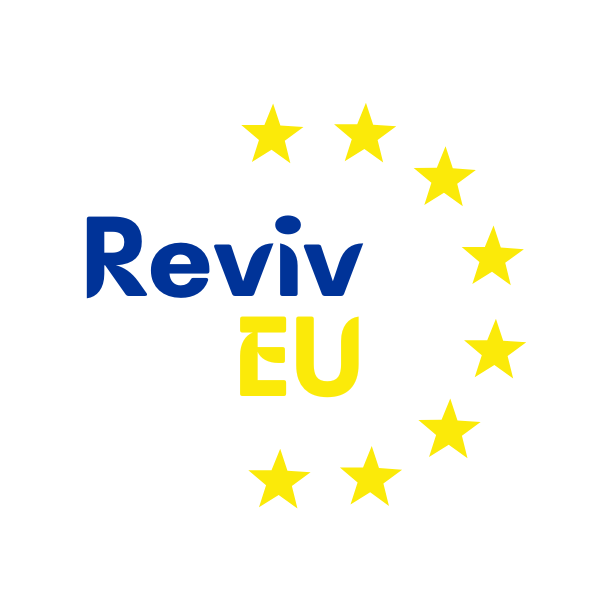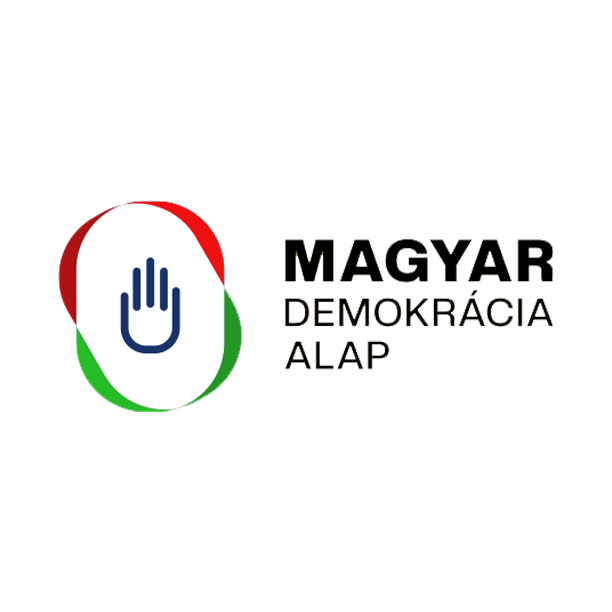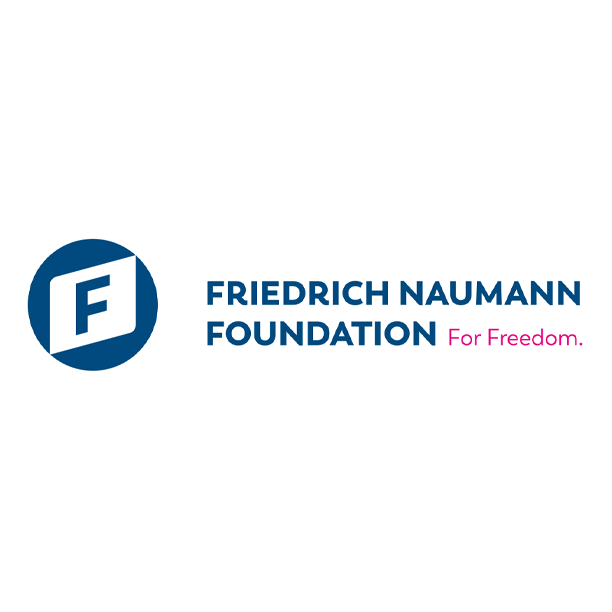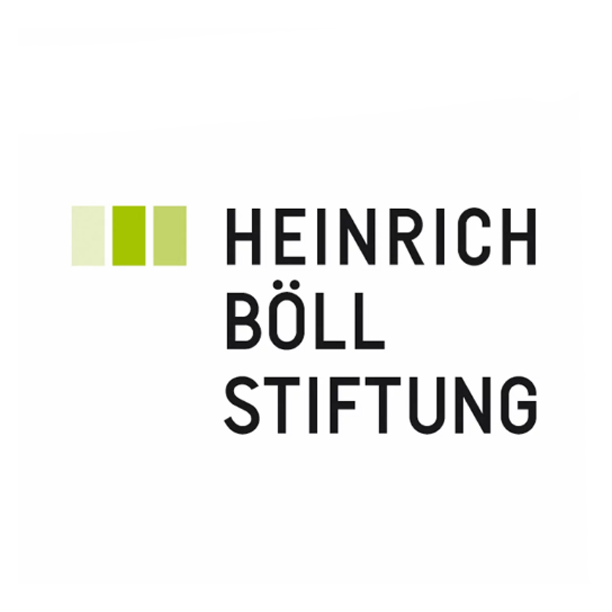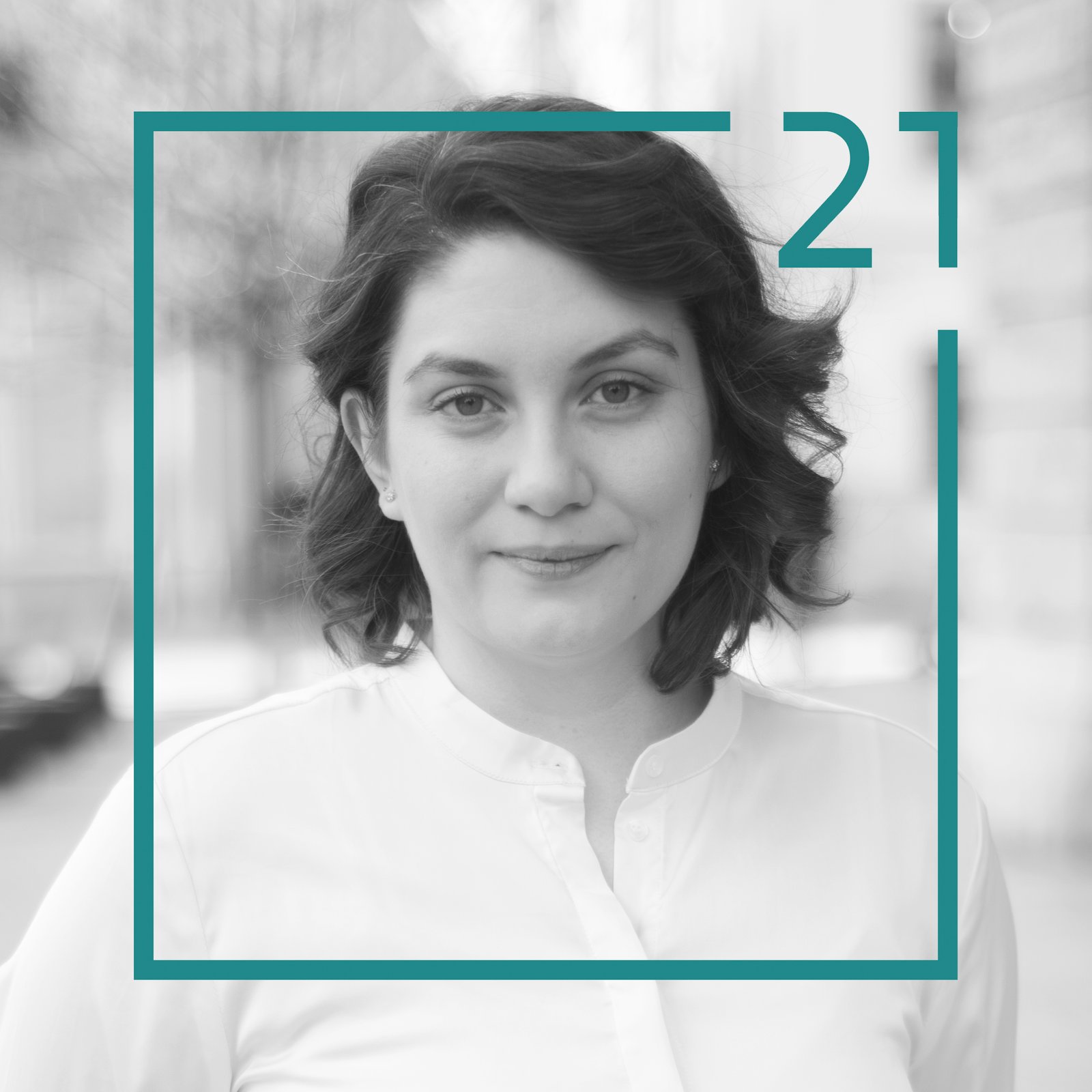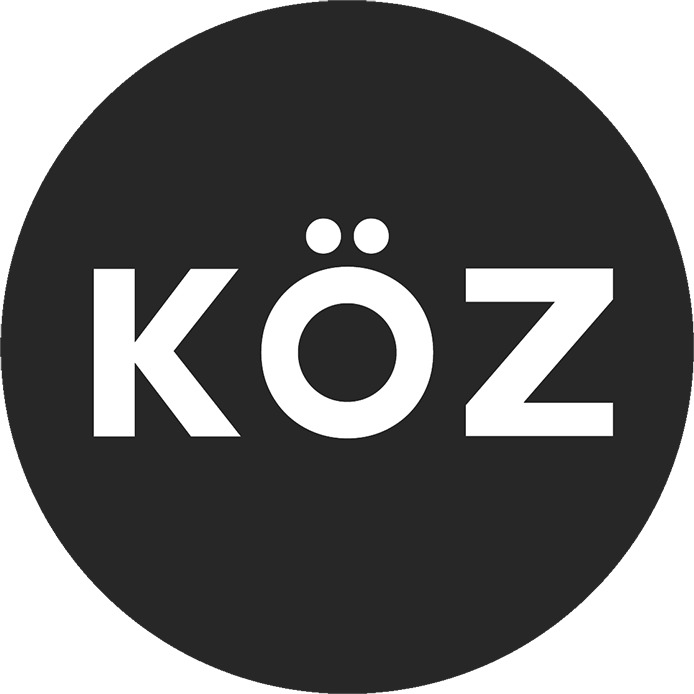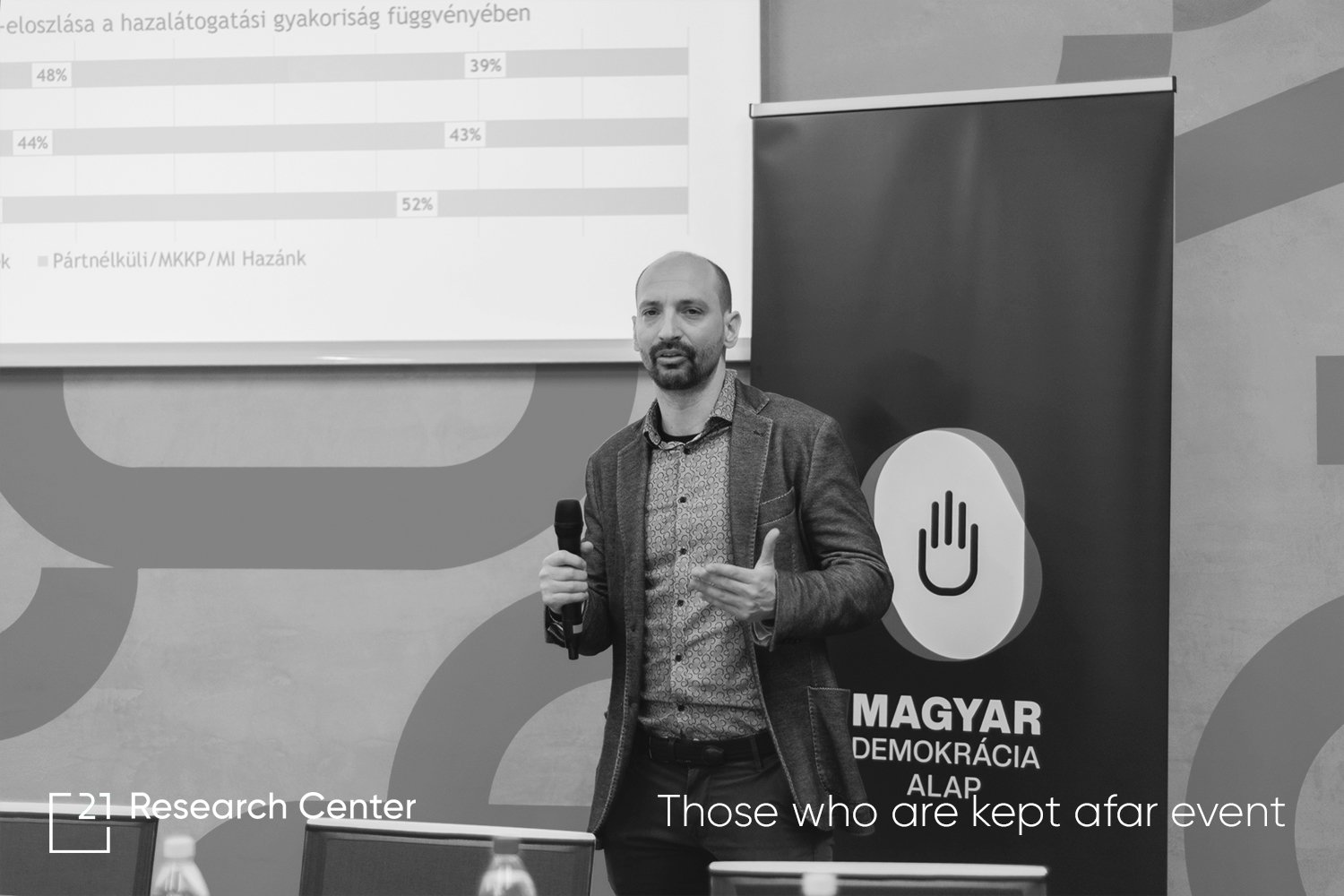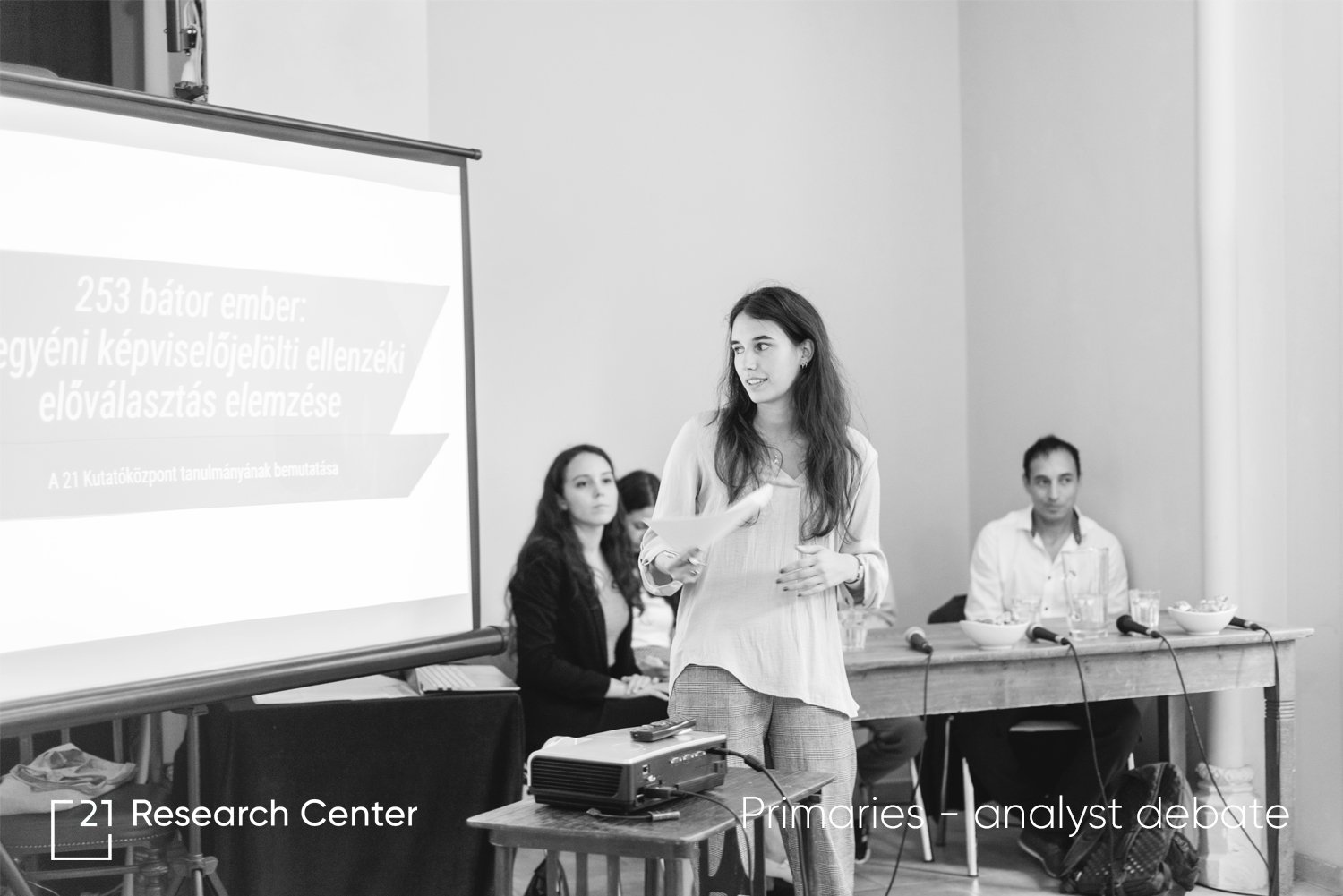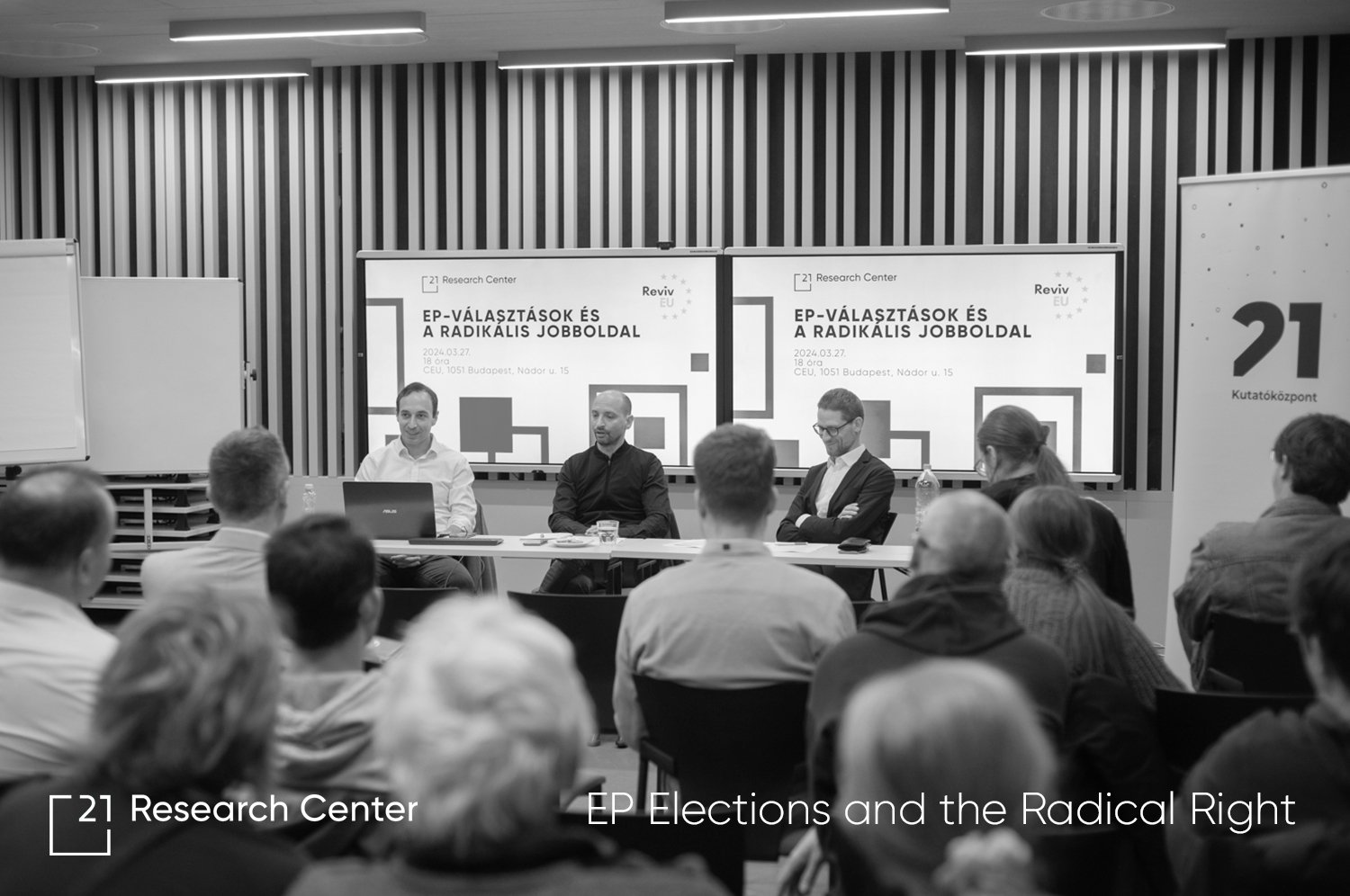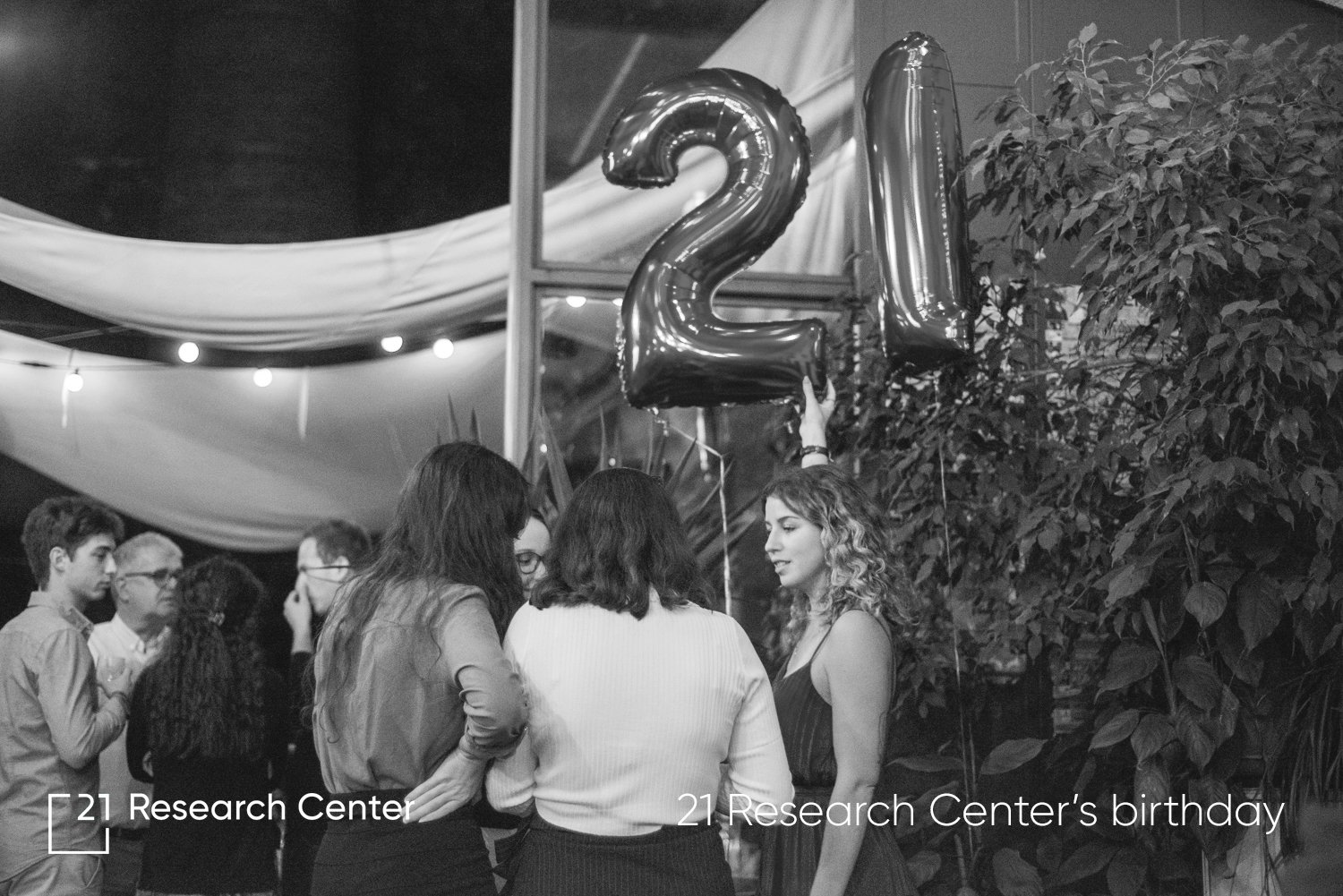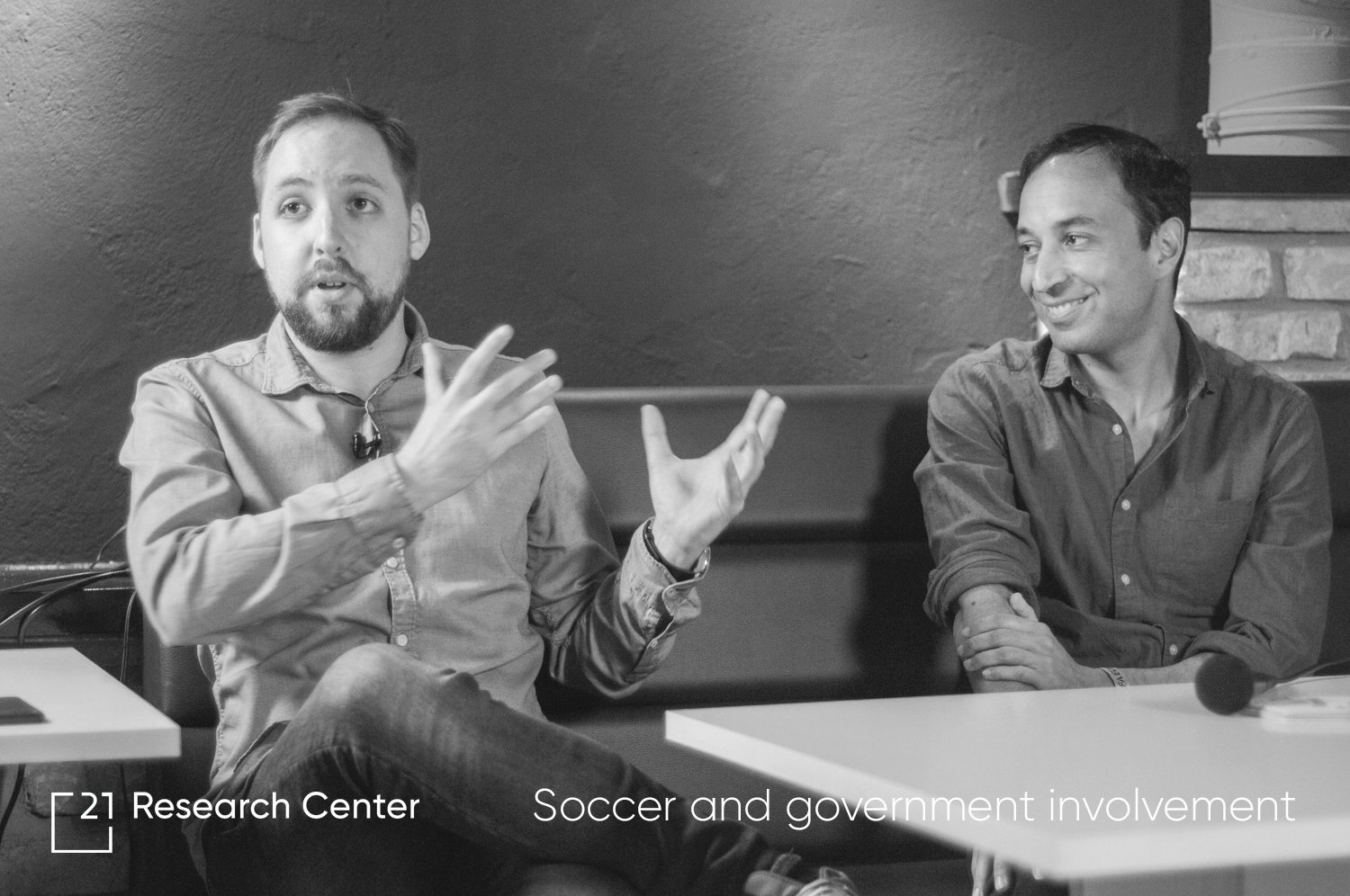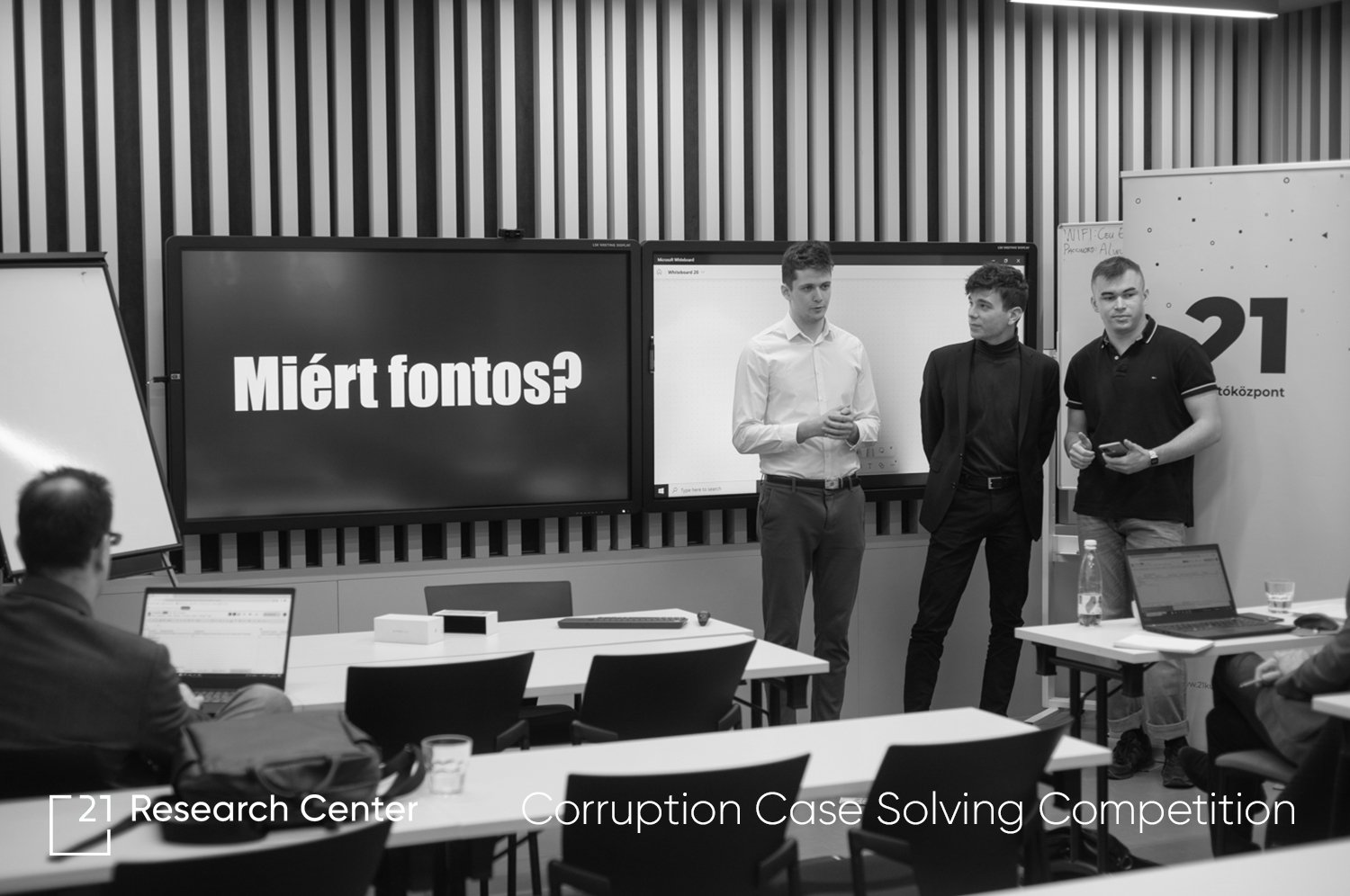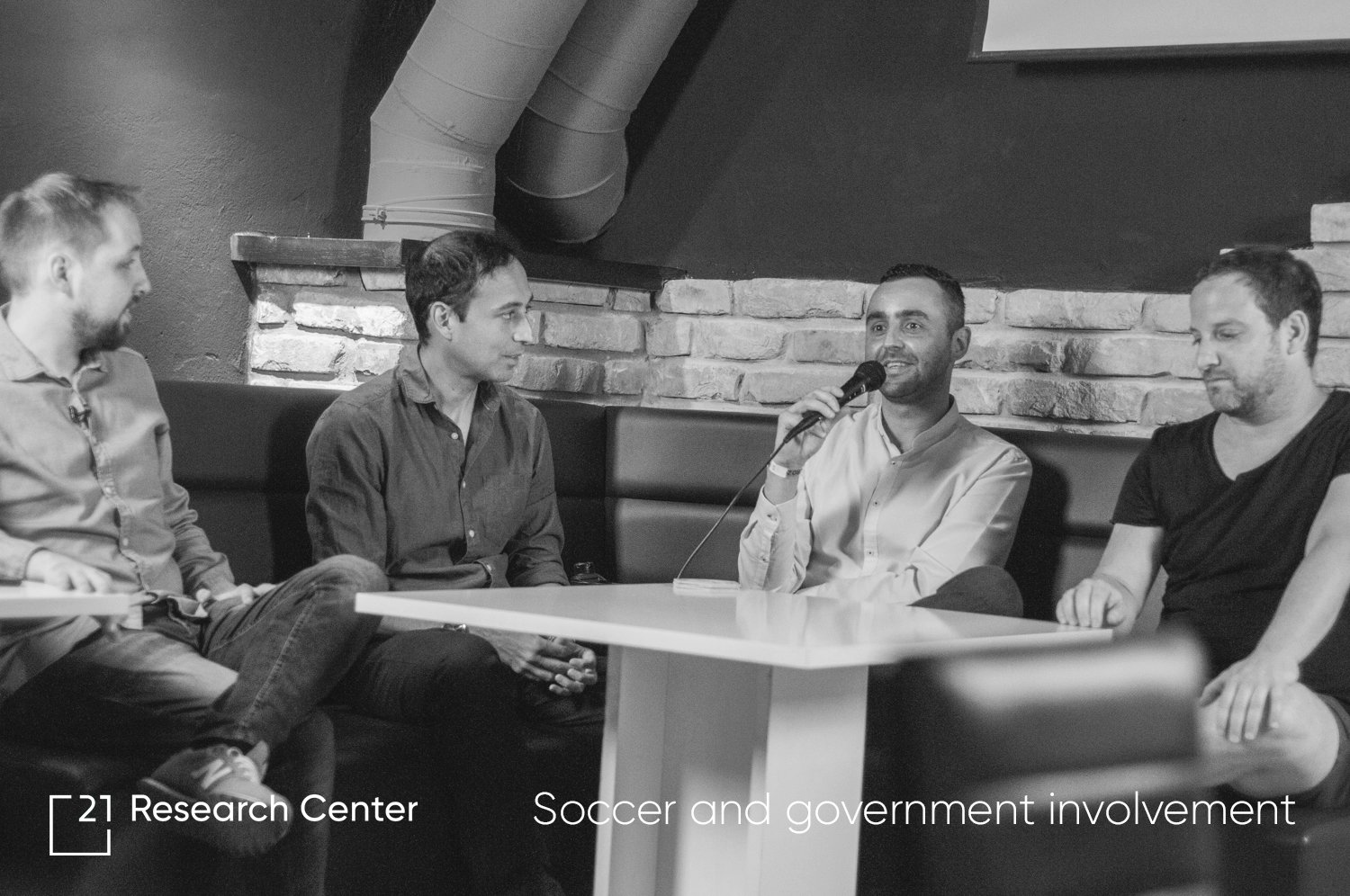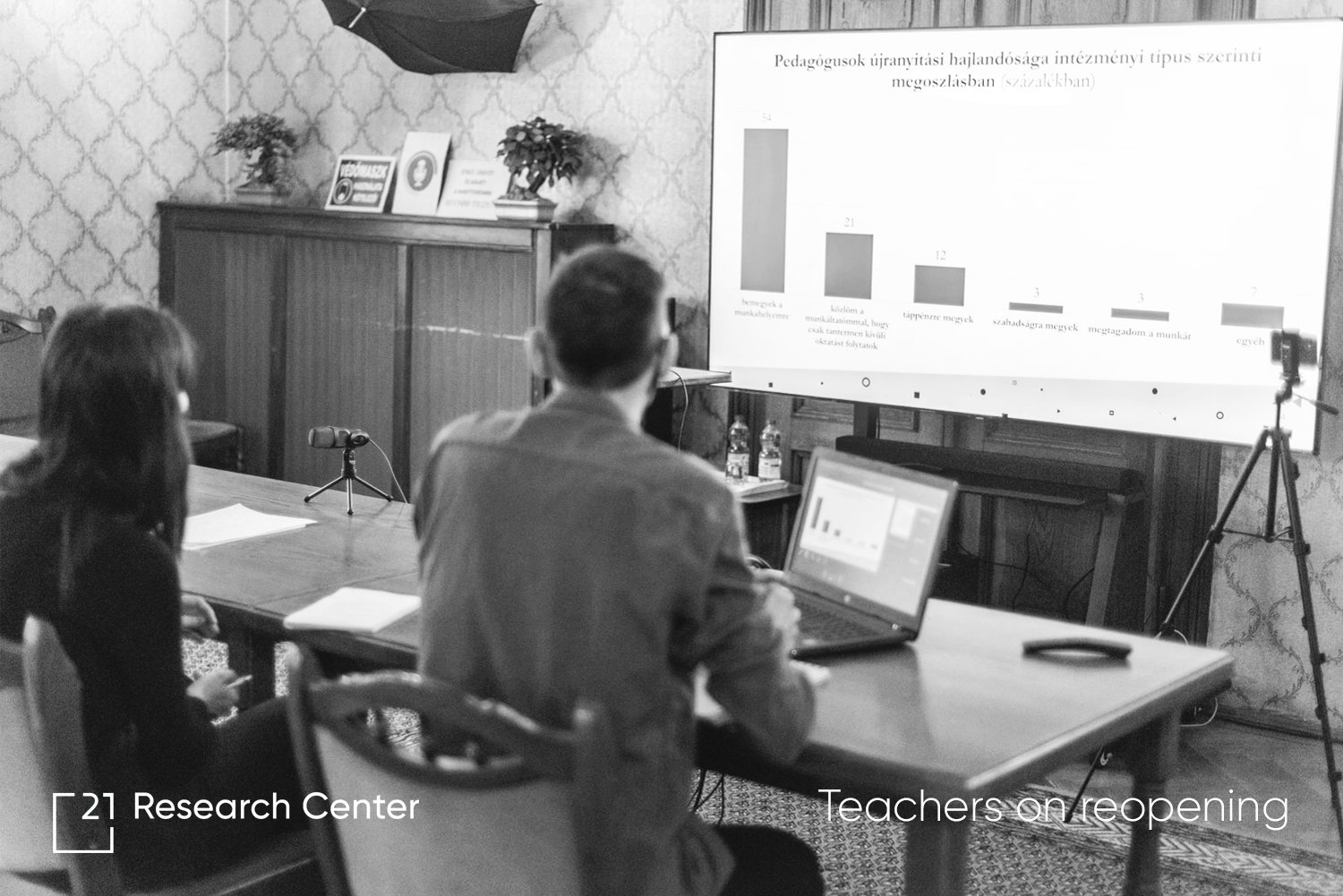Our Work
Introducing 21 Research Center.

21 Research Center is an independent Budapest-based think tank specializing in social research, public opinion polls, political analysis and consultancy.
Since its founding in 2020, the 21 Research Center has regularly conducted both domestic and international surveys, many of which have been published in the Hungarian media. We are members of ESOMAR, the International Association for Public Opinion Researchers. The organization is directed by Dániel Róna, while the ownership rights are held by the Foundation, which is also chaired by Dániel Róna as Chairman of the Board of Trustees. In 2024, ahead of the European Parliamentary elections, the center conducted the most accurate election poll in Hungary, using an innovative method introduced in the country for the first time.
Our returning clients include local governments, national and international organizations, economic and political stakeholders, as well as representatives from the scientific and academic sectors.
The Center is dedicated to advancing the political insight, openness and democratic culture of Hungarian society. Our Research Center is fully committed to Hungary’s Euro-Atlantic orientation, environmental protection, and the general values of a merit-based, inclusive and participatory democracy. The Center aims to co-operate with political and economic actors that share the same set of goals. Our mission rests on the pillars of professionalism and our main purpose is to create analyses and policy papers which are:
- objective,
- free of bias,
- follow the highest scientific standards, and
- build upon abundant hard data.
Our Services
For a detailed offer ask us at info@21kozpont.com or by simply clicking on the button below, which will navigate you to the place where you can ask us directly!
Quantitative research
Whether it is exploratory, descriptive, or explanatory research, the many different types of surveys we provide are suitable for answering the research question. Depending on the reach of certain target groups, we choose the data collection platform. The questionnaires are written by the researchers of 21 Research Center specializing in quantitative techniques, and data collection is provided by the institute’s permanent partners. The survey questions are asked from the selected respondents by trained interviewers in person, online, through an application, via the phone or perhaps in a hybrid fashion.
Qualitative research
Interviews and focus group discussions are some of the most commonly used methods of qualitative research. In contrast to questionnaire research, we do not seek to understand surface patterns, rather, we try to gain a deep and unique understanding of the issue at hand. The individuals attending interviews, focus groups, and in-hall tests do not know each other, and are recruited for the given issue or occasion to meet and share their thoughts with our researchers under controlled conditions.
Secondary research
A collection of non-intrusive techniques designed to study recorded communication, in which the coding of certain speeches, posts, websites, magazines, advertisements, or the recording of any audio material enables us to extract the most important information from the sources. Such media, content and discourse analysis is a long-term, comparative, data-rich method that can provide us with an excellent overview of the actors who own and thematize different topics.
New, innovative research
This method enables us to find out how the active users of social media feel about a particular brand, person, news, or unexpected event. Social listening allows for continuous monitoring - up to several months, and is therefore an excellent research tool for measuring the effectiveness of communication channels.
International Projects
The 21 Research Centre has won several international grants in its lifetime. For a detailed description of our international grants, click on the More projects.
Analyses
The analyses of 21 Research Center can be read and downloaded by clicking on the following links.
-
2024.11.25. – Behind every succesful man... - Challenges and Opportunities for Women's political participation in Hungary
The research is available here.
The research was funded by the Friedrich-Naumann-Stiftung.
-
2024.10.28. - What Unites Us More than Divides Us Research on political divisions and similarities among Hungarian voters
The research is available here.
The research was funded by the Heinrich-Böll-Stiftung.
Winners
Visual
First place: Czégai Dorka Lili - "Hal"
Second place: Dobos Rebeka - "Magyar találkozás"
Third place: Prasch Ráhel - "Pörköltszaftos ing"
Essay
First place: Deák Eszter - "Egy pormacska utazása"
Second place: Ferdinandy Réka Katalin - "Isten volt tanúja"
-
2024.07.31. - Who Else If Not Us? - Youth Political Participation in Light of the European Parliament Elections
The research is available here.
The research was funded by the German Marshall Fund.
-
2023.07.11. - Bad news travel fast, fake news travel faster
-
2022.11.30. - Media consumption patterns and media landscapes in illiberal regimes
-
2022.04.30. - Can They ever win? The Past and Future Prospects for an Opposition Victory in Hungary’s Competitive Authoritarian Regime
-
2022.02.16. - Those who are kept afar: The political preferences and social attitudes of the emigrated Hungarians
How do emigrated Hungarians think about various social issues, such as the role of the state, the image of minorities, and Hungary's Euro-Atlantic commitment?
How different are our values from those of Hungarians living at home?
To what extent is this reflected in their party preference and willingness to vote? How is Fidesz and the common opposition list among emigrated Hungarians and those living in Hungary?
How many seats can Hungarians abroad decide or decide on the fate of their mandate if the government did not make it more difficult to exercise their right to vote from abroad?
Last but not least, what political and economic factors are driving their moving intentions?
The research is available here.
The presentation presented at the event can be accessed by clicking on the link.
-
2021.06.17. - Minding the gap: deepening political polarisation in Hungary and Poland
21 Research Center and their Polish partner, Project:Polska, present their joint study ‘Minding the Gap: Deepening Political Polarization in Poland and Hungary’, a project supported by the Friedrich Naumann Foundation for Freedom.
Previous studies have shown that support for Fidesz-KDNP in Hungary and PiS (Law and Justice) in Poland is disproportionately higher in smaller towns and villages, where more people with lower economic status live. The aim of the study is to explore this phenomenon in more depth and to learn about the similarities and differences between the processes taking place in the two countries. The research built on four (2-2) focus groups conducted in the two countries with the participation of people from lower- and lower-middle-class, without a degree, living in small-population, strongly pro-government settlements. In both countries, an opposition group and a pro-government group were interviewed.
The research covers four main topics in Hungarian and Polish and comparative terms: i) local (democratic) decision-making, ii) economic fears and prospects, iii) perceptions of political leadership, iv) polarization and social opposition based on political opinions.
-
2020.12.21. - A political reversal? Annual summary analysis
21 Research Center analysed the political impact of the pandemic and the changes the economy suffered in 2020. This year saw the consolidation of the bipolar party system established in the 2019 municipal elections, whereby party competition and voter behavior is determined by its relationship with Orbán and his system.
The research is available here. (only available in hungarian)
-
2020.12.10. - A brief analysis on the modification of Pest county’s constituency boundaries
This brief analysis examines the impact of the modification of Pest county’s constituency boundaries. The study concludes that the current amendment does not affect the election chances in 2022: the redrawing of the constituency boundaries was minimal this time, and it does not favour either side. The government has accepted an opposition proposal for a seemingly less important matter, but the entire electoral system and the wider campaign environment is one-sided already: it distorts the will of the electorate in a way that is very favorable to Fidesz.
The research is available here. (only available in hungarian)
-
2020.11.09. - Did they measure worse than four years ago?
International and Hungarian press have been arguing that opinion polls, similarly to 2016, were unable to accurately predict the outcome of the US presidential election. But why is this? And to what extent did opinion polls even measure erroneously in the US presidential and senate elections? This analysis shows that, from a researcher’s perspective, 2016 was indeed repeated: surveys underestimated Trump’s support, but far from all opinion polls and far from the extent the media argued - just like in 2016. The correct interpretation of the surveys illustrated that the election chances were balanced all along, but - unfortunately - such cautious and low-sounding interpretations were pushed into the background - just as they were in 2016.
The research is available here. (only available in hungarian)
-
2020.10.07. - Parliamentary seat allocation calculator and interactive election map
21 Research Centre has created an interactive electoral map with which citizens can predict the number of seats the opposition and the current ruling party, Fidesz, would win based on their (expected) national vote share. By what margin should the share of votes change by 2022 for the opposition to win the next election? What can we expect based on the current poll data, how many seats will the opposition win in 2022 given that the main opposition parties have already agreed to nominate only one candidate against Fidesz in each of the 106 constituencies? It seems that the next parliamentary election will be a battle between two forces – a united opposition and Fidesz – similarly to 2006 when the two main forces were MSZP (the socialist party, which has shrunk considerably since then) and Fidesz.
Parliamentary seat allocation calculator and interactive election map
The methodology of the parliamentary seat allocation calculator (only available in hungarian)
-
2020.06.25. - The Fidesz secret. The reason why voting in Hungary is related to the economy.
Our study investigates the reasons behind the persistent popularity of Fidesz (the party that has been governing Hungary for more than a decade), using a database containing over ten thousand responses to opinion polls conducted between 2018 and early 2020 (pre-COVID-19). We assess economic voting, political patronage, social psychology and media consumption as competing explanations. Our results suggest that among these economic motivations are the most important. Though support for the governing party is monotonically decreasing in social status, voters are generally satisfied with their economic outlooks down to the lowest classes of society, who are firmly pro-government. Voters also name economic policies of the government as the most relevant for them. As another piece of evidence in favor of economic voting, we find that support for the government is historically closely tied with consumer sentiment, which highlights that the current COVID-19 recession might become the biggest threat to government popularity in at least 8 years. Interestingly, even the minority among the poor who report decreasing economic opportunity vote for Fidesz in great numbers, which we argue is caused by a combination of political patronage and social psychology-based mechanisms. We find no evidence that government dominance of the media is a key driver in the popularity of Fidesz, as all voters consume independent media outlets as well.
-
Research on teachers
In 2020-21, 21 Research Center conducted an online survey among educators on epidemiological measures and distance learning. In particular, we were curious about how effective teachers and people working in public education find the current restrictive measures of the pandemic; how they can realise these measures in their daily life, during their work; their opinions on and experience with digital distance learning; and their physical and mental health. To answer these questions, we conducted surveys on a representative sample of the Hungarian teacher population along the dimensions of age, region and type of educational institution.
2021.01.26. - Treating symptoms instead of the cause. A brief report on the research about teachers.
In the first week of April, 21 Research Center together with the Teachers’ Union conducted an online survey of educators on the government’s planned reopening. The primary aim of the study was to gain insight on the opinion of teachers regarding the planned reopening and to unpack the possible scenarios they find most secure. According to our findings, the overwhelming majority of teachers (87%) does not support the planned reopening of educational institutions on April 19, while 7 percent agrees with it.
-
Research on women's affairs
Resultant to the shifting focus to women’s role in politics and economics, the following brief analysis had two aims. Firstly, it provides a description on the roles of women in politics in Europe and Hungary, presenting the ratio of women in the European Union and on national levels, and finally in the Hungarian parliament, while taking a close look at women’s ratio of entry in the parliament. Secondly, the study presents an analysis on the political behaviour of women and men and the differences between them, using two databases from 2018 and 2021. The adjusted sample represents the opinion of teachers working in Hungary along three dimensions (age, region, type of institution).
2021.03.08. - Women's Affairs: The proportion of female leaders in Europe and Hungary
This analysis addresses the issue of the “gender gap”. That is, we examine whether there is a difference between men and women in terms of willingness to vote and other policy variables. Is gender decisive in terms of willingness to vote? Do women and men vote differently, or do they think the same way about the political situation? The study finds that gender alone does not determine the chances of participating in voting, however, we can observe statistically significant differences between the forms of political participation and interest of women and men.
-
Research on consumer confidence index
21 Research Centre launched its monthly analysis examining the relationship between the population’s economic expectations, certain important financial changes affecting the country's financial and social situation, and the support of the respective incumbent parties.
Money and pandemic management - Confidence index in 2021 March (only available in hungarian)
Optimism in light of the third wave - Confidence index in 2021 April (only available in hungarian)
Back to normal? - Confidence index in 2021 May (only available in hungarian)
Growth and stagnation - Confidence index in 2021 June
The tables have turned - Confidence index in 2021 August
Indian summer? - Confidence index in 2021 September
Not so scary anymore? - Confidence index in 2021 October
Ending the Year on a High Note - Confidence index in 2021 December
Research on opposition primariesPrior to the opposition primaries, 21 Research Center examined the socio-political background of the candidates running in the primary, the balance of power between the opposition parties, and the expected outcome of the electoral districts' struggles. The analysis concludes that the results will likely correlate with the voting base of each party, and that all six parties stand out in different ways with respect to demographics, bringing diversity into the opposition alliance.
The present analysis - written during the primaries - takes stock of the primary’s winners in the first round on the basis of similar demographic criteria as the previous study. Additionally, after presenting a statistical analysis of the winners and interpreting the results, we offer a glimpse at the primary’s second round, i.e. the final race between prime minister candidates.
2021.10.11. - Multicoloured opposition: An analysis of the opposition primary’s first round
Péter Márki-Zay exceeded all expectations in the first round of the opposition’s presidential primaries. But what explains this - apparently - sudden popularity? Our analysis concludes that in fact his reputation and popularity have been on the rise since he first appeared on the political scene in 2018. Moreover, his novelty and anti-establishment campaign, coupled with the divisive personality of his opponent Klára Dobrev, and the withdrawal of Gergely Karácsony (the mayor of Budapest) enabled him to win the second round of the primaries.
2021.10.21. - The "Márki-Zay" trend: A brief analysis of the primaries’ voters
Own ResearchOur survey conducted in late October suggests that the vast majority of Budapest residents approve of mandatory facemask requirements for public transport and closed spaces, and would even support further restrictive measures. Interestingly, the survey also showed that individuals’ party preference did not significantly determine their perceptions on restrictions, it was rather whether they received the vaccine or not that had a great impact on their responses.
The research is available here. (only available in hungarian)
Quick Report podcast from the 21 Research Center!
Fresh social research findings first-hand, from researchers at 21 Research Center. Listen by clicking on the button!
Our Events

EP Elections and the Radical Right Event
What results can we expect in the June EP elections across Europe? Which party families will grow stronger and which will weaken? Can we expect a populist/eurosceptic right-wing breakthrough? How will these parties form factions? Which will Fidesz join? What will influence the electoral performance of these parties? We have organised a round table discussion on this topic.

Corruption Case Solving Competition
How to fight systemic corruption in Hungary? Apply for the 21 Research Centre's study competition, let's think together about corruption! During the competition you will have one and a half months to work in teams to solve the competition task, after which the jury will select the three best entries, which will be presented in a final by the teams on the podium, who will receive valuable prizes.

Rule of Law and Climate Policy Event
First, Dániel Róna, Director of the 21 Research Centre and Ábel Bojár, former Research Director of the 21 Research Centre, discussed the state of the rule of law and democracy in Hungary. Then, our qualitative analyst Kata Kiss spoke to Dóra Csernus Csernus, climate policy expert at the Equilibrium Institute, about the European Union's climate goals and their representation in Hungary.
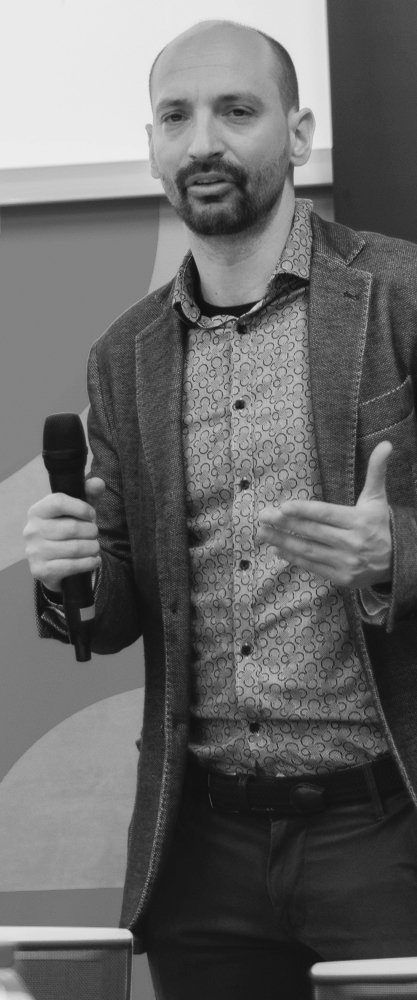
Those who are kept afar - event
How do emigrated Hungarians think about various social issues, such as the role of the state, the image of minorities, and Hungary's Euro-Atlantic commitment? Among other things, these topics were discussed by our guests moderated by Gabriella Torzsa, our analyst. The discussion was hosted by Ábel Bojár, an analyst at the 21 Research Centers.
Our Researchers
We at 21 Research Center believe in the power of diversity and youth. You can read about us in detail by clicking on the name of our employees. Enthusiastic and well-prepared interns also help us with our work.
Join us!
We love working with exciting people! If you are interested in research, already have experience in polling or you would like to be an intern, this is the place for you! See our current job offers by clicking on the button!
KÖZ. It's about you too! What do you think?
The 21 Research Centre's programme recommendation page for young adults.
Support
Support the work of 21 Research Center!

If you identify with our goals and would like to help, please support our Foundation!
You can send your donation to us at the bank account below.
Beneficiary Name: 21 Kutatóközpont Alapítvány
Bank account number: 10404027-00032798-00000005
In the subject box, please indicate that you are making a donation.
Even the smallest offer helps our work!
21 Research Center Ltd.
If you have any questions, feel free to contact us at one of the contact details to the right or directly here on the website.
1032 Budapest
Szőlő Street 88. 2./10a.info@21kozpont.com

 HU
HU



